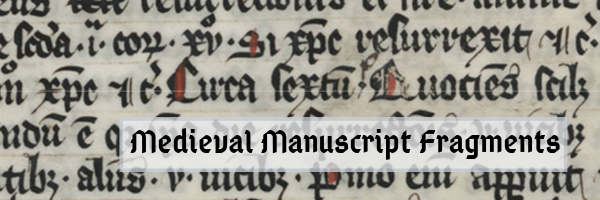The medieval manuscript fragments housed at the University of Mississippi focus heavily on the works of Priscian and Titus Livy as well as classic Christian texts.
Priscian, a 5th-century Constantinople-based Latin grammarian, composed Institutiones grammaticae, an extensive work explaining Latin grammar through literary works. Religious works in this collection include fragments from The New Testament, a Book of Hours, a French Missal and the Golden Legend. A final notable work is that of Titus Livy, a Roman historian, created by Giacomo Curlo, a prominent 15th century scribe.
These fragments were created by scribes between the 10th and 15th centuries. A few of the manuscripts are illuminated, ranging from simple flourishes to elaborate illumination. Other leaves composing these texts can be found at various institutions throughout the World.
Image from this collection: "Fragment, Golden Legend" / Jacobus de Voragine (circa 1400)
-

Priscianus Grammatius Caesariensis. Institutes Grammaticarum Cum Glossis Marginalibus Et Interlinearibus Fragmentus SAEC. X Exeuntis
Priscian, active approximately 500-530
-

Fragment. Priscian's Institutes
Virgil; Horace; Lucan, 39-65; Lucilius, Gaius, approximately 180 B.C.-approximately 102 B.C.; Persius; Lucilius, Gaius, approximately 180 B.C.-approximately 102 B.C.; Persius; and Persius
-

Fragment
Lucilius, Gaius, approximately 180 B.C.-approximately 102 B.C.; Persius; Virgil; Plautus, Titus Maccius; Naevius, Gnaeus, approximately 270 B C-approximately 200 B C; Ennius; Livy; and Ovid, 43 B.C.-17 A.D. or 18 A.D.









